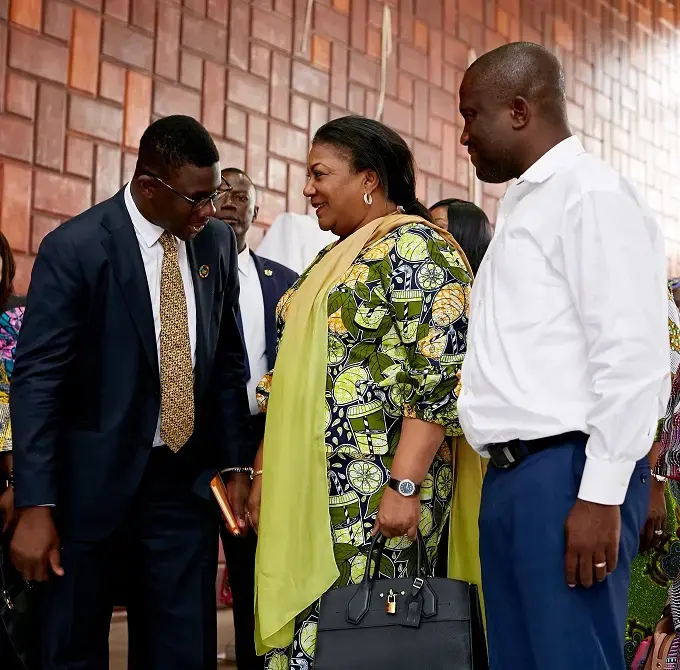The First Lady of the Republic of Ghana, H.E. Rebecca Akufo Addo charged leading female and male Ghanaian voices to champion education for girls and women as a means of improving gender parity in Ghana towards national development. She was speaking at a 2018 International Women’s Day (IWD) programme organized by her office that brought together women from across all fields of endeavour. She said her aim is to make meaningful contributions to a Ghana where there is gender parity. She is pushing this aim through the various programmes of “The Rebecca Foundation”. She pointed out that Ghana has all the policies, laws, knowledge and tools to eliminate harmful traditional practices such as female genital mutilation and child marriage. What is needed is “Action” and that action must be now.
The First Lady highlighted that there is a myriad of women’s issues in our society today. Strategically, however, the 2018 IWD event highlighted education as a means of pressing for progress in gender parity and to discuss improved access to education for girls especially at the secondary and tertiary levels more broadly. She also announced that she is working with the UNFPA, to get girls to stay in school, especially in the poorest communities, by deploying community led strategies that address this phenomenon.
In a panel discussion at the event, the UNFPA Representative, Mr. Niyi Ojuolape said, Ghana needs to pay particular attention to adolescent girls because they are at the heart of population growth and development dynamics in West and Central Africa. According to the 2010 Population and Housing Census of Ghana, 51% of the population are women, of which adolescent girls accounted for 21.7%. This significant statistic cannot be overlooked, he lamented. It is for this reason, that UNFPA and the Rebecca Foundation are implementing the “Because I want to be” programme to ensure that all teenage mothers have the opportunity to go back to school and at the same time define strategies to retain those already in school to move up to tertiary educational level.
The UNFPA Representative informed the audience through his panel presentation that addressing inequalities and discrimination have always been at the heart of UNFPA’s work and, “we work to ensure that no one is left behind through programmes that improve the lives of excluded and marginalized women” Mr. Ojuolape concluded.
In her panel presentation the Paramount Queenmother of the Assin Atandasu Traditional Area, Nana Abena Gyamfua II said traditional authorities have a role to play in ensuring that the old fashioned taboos that hinder girls’ education are replaced. To her Majesty, culture is dynamic and “we can always pacify the gods and allow our girls to go to school and have their dreams realized”.
The Minster of Gender, Children and Social Protection Ms. Otiko Djaba took time to answer the questions that came from the audience and also used the opportunity to outline some of the programmes that the Ministry is implementing to improve the lives of women and girls.
Present at the function were many dignitaries, including the wife of the Vice-President, Mrs. Samira Bawumia; former First Lady, Nana Konadu Agyeman Rawlings; former First Lady Mrs. Fulera Liman, former Second Lady, Hajia Ramatu Mahama, and members of the diplomatic community. Others were queenmothers, female members of parliament (MPs) and ministers of state, female politicians, academia, actresses, female students from the tertiary institutions, representatives of professional women’s groups and market women.




